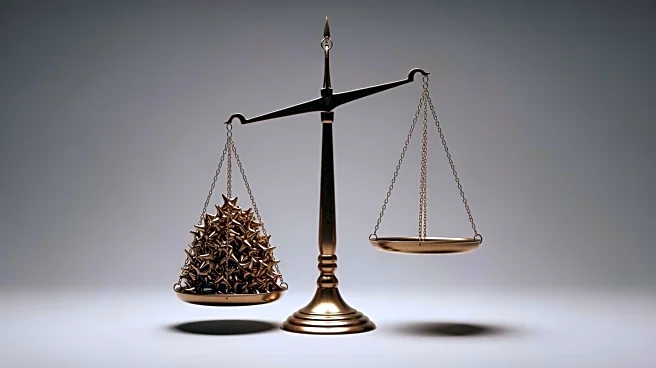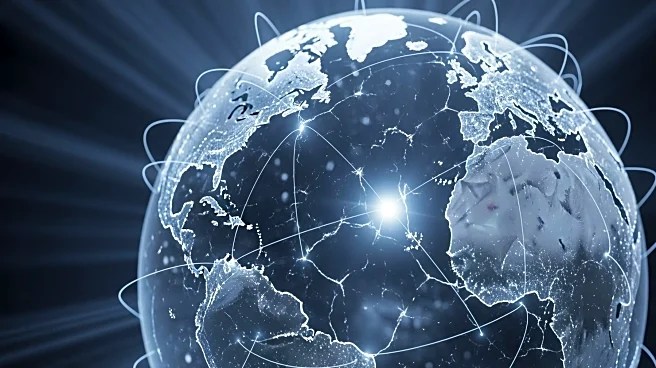What's Happening?
Western sanctions on Iran have significantly impacted the country's middle class, which has historically been a force for political moderation and reform. According to a study published in the European Journal of Political Economy, these sanctions have led
to a shrinking middle class, increasing societal resentment, and a widening wealth gap. The sanctions, which have been in place since 2012, have resulted in a 28% reduction in the middle class by 2019, compared to a hypothetical non-sanctioned Iran. The economic pressure has led to a rise in the cost of basic goods, with inflation rates reaching 42.4% as of October 2025. The sanctions have also strengthened state-linked entities like the Islamic Revolutionary Guard Corps (IRGC), while weakening independent economic actors.
Why It's Important?
The diminishing middle class in Iran is significant as it has traditionally been a driver of reform and political stability. The sanctions have not only affected the economy but have also shifted the political landscape, empowering hardliner factions and increasing reliance on government services. This shift has altered the nature of political engagement in Iran, moving from middle-class demands for rights to working-class struggles for survival. The sanctions have also limited the government's ability to provide social safety nets, further entrenching poverty and inequality. The long-term impact could lead to increased social unrest and a weakened push for reform, affecting regional stability and international relations.
What's Next?
Rebuilding Iran's middle class is a generational challenge that cannot be quickly resolved, even if sanctions were lifted. The current economic and political dynamics suggest that the country will continue to face challenges in achieving social and economic stability. The international community may need to reconsider the efficacy and humanitarian impact of sanctions as a foreign policy tool, especially in countries with significant middle-class populations. The ongoing situation could lead to further protests and social unrest, as the population grapples with economic hardships and limited opportunities for reform.
Beyond the Headlines
The sanctions on Iran highlight the ethical and humanitarian considerations of using economic pressure as a diplomatic tool. While intended to target government and military entities, the broader impact on the civilian population raises questions about the morality and effectiveness of such measures. The situation in Iran serves as a case study for the unintended consequences of sanctions, particularly in countries with complex social and economic structures. The long-term cultural and societal shifts resulting from these sanctions could have lasting implications for Iran's future development and its role in the global community.















